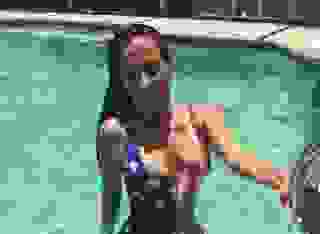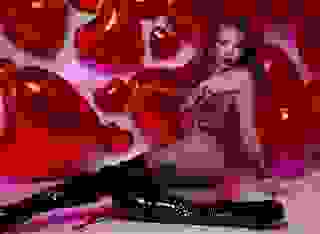Note: You can change font size, font face, and turn on dark mode by clicking the "A" icon tab in the Story Info Box.
You can temporarily switch back to a Classic Literotica® experience during our ongoing public Beta testing. Please consider leaving feedback on issues you experience or suggest improvements.
Click hereWere the situation different, had he not made the decision to go to sea, he would have never found himself in such a perilous predicament. He would have led the simple life of a farmer just as had his father and grandfathers as far back as anyone could remember.
Farming had been in his blood, placed there "when he suckled at the paps of his mum", his grandfather had been fond of saying. He would likely have continued the family occupation had it not been for the stern upbringing he'd received.
His father was a man pious in nature and determined to pass that piety on to his children. His father also believed hard work was required if a man was to live a pious life.
Most things other boys were allowed to do were forbidden to him. Instead of playing at hoops or catching minnows in the brook, he toiled beside his father and brothers in the fields and barn during the day. Sundays were reserved for reading from the family Bible.
At the age of eighteen, his father had taken him to Weymouth when he went there to purchase a horse. In the distance, he had seen the tall masts of the ships at anchorage and asked his father about them. His father had frowned.
"Boy, those are the tines of the Devil's own pitchfork. They lure young men away from their families and carry them to far away places, places filled with strong drink and loose women. The sailors sleep only on hammocks in the damp of a leaky room, and eat only salt pork or beef and wormy bread. It is no life for any man, much less for a man with the good soil of the land on his hands and the fear of God in his heart. I'll hear no more talk about it."
After a year of being worked more as a slave than as a son, he had again thought about those tall masts. Weymouth was as far from home as he'd ever been, though he knew the world was much larger. He was curious to see how much larger it truly was. His uncle on his mother's side had traveled through England as a journeyman smith, and had worked in the shipyards in Weymouth when younger. When that uncle came to Sunday dinner one day, he asked about the ships as they walked together to inspect the fields. His uncle smiled.
"Had I been your age when I forged the iron for the hooks and rudder chains, I would have downed tools and joined the sailors in the forecastle. Such were the tales they told - lands where the chill winds of winter never come, lands with strange natives who go around mostly without clothing, lands where strange and tasty fruits fall from the trees for the picking up."
"Father says the life of a sailor is harsh, with only salted meat and wormy bread to eat, and a swinging bed in a leaky part of the ship."
"Yes, it is true that all ships leak some, and salt pork and salt beef is the common fare. As for worms, the bread our own women bake will do the same if not quickly eaten. Such has not yet killed me.
'Tis all in how you look at it, boy. Would you rather eat salt pork and wormy biscuits on occasion, or taste the soil of England in your throat for the rest of your life? In port, there is food fit for a king, wine such as you have never tasted, and women", his uncle nudged his arm and winked, "of a more agreeable nature than is any farm girl."
The next morning, his father had spoken harshly to him for forgetting to even the traces on the plow.
"You'll have this fine horse pulling with only one pair of legs and render him unfit to work after only a few hours. Do you not have a mind in that head of yours?"
He had resented that statement as well as the feeling his father seemed to think more of a horse than of his son. He stopped the horse, looped the reins over the plow handle and faced his father.
"I do not wish to be spoken to in this way again. If you find fault with what I do, you need only tell me and I will correct my error."
His father had scowled.
"No son of mine speaks to me like this."
"Then I am no son of yours, and I shall leave."
With that, Mr. Wainwright had walked to the house, tied up a bundle of his two extra shirts and pants, and set off on the road for Weymouth.
Yes, he thought, had I held my temper, I would be married to a fine English girl and have children of my own to help in the fields, though such a life would never have been so exciting and fulfilling as the one I now lead. I would never have seen the Caribbean isles, never sailed across the vast ocean and, he smiled to himself, I would never have met Marie.
Ah, Marie. If only they had met in Port Royal when he was taking in the sights.
He had thought to leave his stern upbringing on that small farm in the English countryside, but found it firmly planted in his mind, just as firmly as the weeds he had pulled had been rooted amongst the rows of pease. He would not drink of the local spirits known as rum, nor could he bring himself to consort with the women of the alleyways. Instead, he wandered the town and immediate countryside, comparing the churches, houses and barns with those in England. Had he met Marie on one of his walks, they might have talked and then become more than just accidental acquaintances.
But he had met her on the Rislane, and had grown to know her only because his Captain had ordered him to protect her and her escort. She could never think of him as anything else. When they finally reached Port Royal, she would return to her life of ease and he would search for a mate's berth on another ship. They would part, never to meet again.
That thought weighed heavy on his mind as he looked to the heavens, satisfied himself he was still on course, and then turned to look to the bow of the jollyboat.
The slip of the moon just beginning its monthly show cast enough light he could see her face. The face was beautiful in his estimation even though it was reddened by the exposure to the intense tropical sun. It was a face he would relish seeing at the end of every day. It was a face he would smile at as their children gathered around them.
He thought of her body as well, the body he'd seen that day in the waterfall pool. Her slender curves had fired his imagination on that day, but he had since discovered Marie to be more than just a well-formed young woman. She was an intelligent woman as well as a beautiful one. She had quickly understood the operation of the rudder relative to the needle of the compass, and her turns when tacking were timed to Madeline's working of the rigging such that the jollyboat lost little headway in the process.
He'd enjoyed their conversations on the island as well. Marie could be serious, but she could also speak of things in a playful manner, and her smile when she did so was as the sun shining through an opening in the clouds.
As the hours passed, his mind engaged in an internal battle over the girl. Should he attempt to become closer to her, she would only suspect him of attempting to trick her into a compromising situation. He had once overheard Madeline telling her that sailors care not for the women they bed. How could she think otherwise?
If he did nothing, she would walk out of his life as soon as her feet touched the dock in Port Royal, but what could he do, get down on one knee and pledge his undying love? He could almost hear her laugh at him for making such a fool of himself.
No, he could not do such a thing. Their stations in life were further apart than just the distance between Weymouth and Port Royal. They were as night and day -- her, the sun shining upon the plantation of her father, he, the darkness of a night at sea such as the one they now endured. Both were surely pre-destined to follow their separate paths.
Even were they not, he thought, surely if Marie felt anything for him she would have given him some sign. She did look at him and smile from time to time, that was true, but Mrs. Mayes also did the same. He thought it unlikely that Mrs. Mayes had any feelings for him, for she was old enough to have him as a son. If she smiled at him and had no other feelings, Marie was likely the same.
Mr. Wainwright sighed, looked at his watch, and then tacked back to the nor'west.
For the next two days and nights they sailed on onward under the Caribbean sun. The trees of Hispaniola passed by slowly until on the evening of their third day at sea, the trees seemed to disappear into the gentle swell upon which the jollyboat sailed. Mr. Wainwright, just woken from his sleep, looked toward the land and then back at Marie and Madeline.
"'Tis the end of the safest part of our voyage. Now, we must turn more southerly and make for Port Royal over the open sea. So saying, he took Captain Knowles' crude chart from his breast pocket and spread it the seat. After estimating the required heading, he gave Marie the same, and he and Madeline made such adjustments to the sails as was required to make best use of the wind.
As the dark of night pushed the sun below the horizon, Mr. Wainwright frowned at the line of clouds ahead. It appeared to be a line of squalls, and such were relatively common in this expanse of the ocean. Were he on the Rislane, he would have merely doubled the watch in preparation for the rain and strong winds. Here, on the jollyboat, his concerns were many.
Neither Marie nor Madeline had weathered even a small storm aboard ship. They would, no doubt be frightened, though their fright was not his major concern. A craft so small as the jollyboat could easily capsize in the heavy waves blown up by the winds. It would take them all to keep her climbing the waves lest she broach and dump them all into the churning ocean. He turned to the women.
"I fear a storm is approaching us. It could be a small one as most are, though the clouds would seem to bring one of more strength. We shall all need to be on watch tonight. As a precaution, I shall tie you both to the jollyboat with the bow and stern lines. It is not likely you will need them, but should a wave crash into us, it will save you a ducking."
He used the sailor's bowline to tie Marie to the stern where she would continue to operate the tiller. The bowline was a strong knot that would never slip and choke her around the middle. He used the bow line with Madeline at the center seat that she might be free to adjust the rigging at his command. Mr. Wainwright then used one of the spare ropes he had brought from the Rislane to tie himself to the thwart between Marie and Madeline.
By his glance at the watch in his vest when lightening split the heavens before the first raindrops began to fall, Mr. Wainwright knew it was just after midnight. He yelled against the rising wind.
"The storm is upon us. Marie, hold tight to the tiller and be ready to change the heading when I say. We must turn and sail with the waves for we cannot tack into this wind. Madeline, stay strong and haul in on the lines as I tell you. We shall make it through this storm and then be on our way."
The light rain became a raging torrent blown across the sea by the wind. What had been the gentle swell that had rocked Marie and Madeline to sleep each night became waves as high as the mast of the jollyboat.
Strong winds tightened the stays of the mast and made them sing with a high pitch, and as the jollyboat raced up the front of one wave, slipped over the crest, and then down the back to the next, her bow was plunged into the water. The jollyboat was filled four inches above the slatted floor. Mr. Wainwright handed Madeline the cooking pot and screamed in order to be heard over the roaring gale.
"Madeline, bail as if our lives depend upon it, for they do."
At that point, Mr. Wainwright loosed the halyard and lowered the mainsail to half-mast to slow their speed somewhat. After that action, the bow did not dip into the wave ahead again. Mr. Wainwright then smashed in the head of the water cask that was nearly empty and began bailing as well. Between them, the water inside the jollyboat was reduced to a tolerable level.
As the winds raged, Mr. Wainwright would feel for the direction the waves pushed the jollyboat. As the sky was black with clouds and the pouring rain, he could do little else to determine which way to turn the jollyboat that she might rise over the waves rather than broach and be filled with water. Marie answered his every screamed order with a turning of the rudder that kept the jollyboat pointed into the waves
"Starboard, to starboard."
The jollyboat would turn, rise over that wave, plunge down the other side and then begin the task of climbing the next.
"Port, Marie, to port now."
And so it was for nearly an hour before the waves became smaller and the rain seemed to diminish as well. Mr. Wainwright was hoarse from the screaming required to carry his voice to Madeline and Marie, and welcomed the easing of the storm. He was nearly ready to tell them they could be more at ease when the storm, as if frustrated by its futile attempts to send them to the bottom, gusted forth a last strong wind that seemed to blow straight down.
The mast stays that had held the spar upright through the raging winds had been strained to nearly breaking during the storm, and had become weakened with each gust. With this final blow, the fore stay snapped with a loud crack and the mast, now pulled by the side and back stays, fell towards the stern. Mr. Wainwright screamed a warning, and Madeline dropped to the bottom of the jollyboat, but his warning was too late for Marie. The falling mast struck the girl on the side of the head. She cried out and then fell forward into the bottom of the jollyboat at his feet.
Though he could not see her in the inky blackness, Mr. Wainwright knew by the cry of pain she had been injured. He felt for her head and raised it from the water that still sloshed over the slatted bottom, then turned her over. That she sputtered and coughed up the water that had filled her nose and mouth told him Marie still lived. He said her name, but got no response and her body was as limp as a rope.
He heard Madeline cry out, "Marie, Marie, are you all right?"
"No, she is not", he replied. "I cannot see the injury, but she is unconscious. We will have to wait until the sun rises to find the cause."
A few minutes later, the storm passed as quickly as it had arrived. The sea calmed to a gentle, rolling swell and stars once again sparkled in the black sky overhead. Madeline untied herself and came to the rear of the jollyboat. Mr. Wainwright was sitting on the floor and holding Marie upright in his arms. She felt down Marie's slender arm to her wrist and searched for the soft throb caused by Marie's heartbeat. After a few moments, she gently laid Marie's arm in the girl's lap.
"Her heart still beats strongly."
"Yes, I determined that as well. It must be she was struck by the mast when it fell. If this wretched night would end, we could tell how severely she is injured."
Madeline touched Mr. Wainwright on the shoulder.
"Attend to the boat, Mr. Wainwright. I will care for Marie."
Working by feel, Mr. Wainwright inspected the damage to the jollyboat. As best he could tell, the mast had been snapped off at the base when the forestay broke. The broken stub was still stepped, and he pulled it out. Perhaps when he could see, he could cut a new step on the mast.
As he continued his inspection, he realized the mast was the least of their problems. The boom and mainsail had been carried away when the mast snapped and fell. With no boom and no sail, they had no hope of making Cape Royal. Then he breathed a sigh of partial relief. The jib was still there, being dragged along beside the boat by the clewlines. He could rig the jib as a small mainsail if he could repair the mast. The going would be slower, but at least they could make headway. He pulled the jib back into the bow and then verified the water cask and food chest were still aboard. Then, he went back to Madeline and Marie.
"Has there been any change?"
"No", replied Madeline. "It is as if she sleeps, though she does not breathe as she would when asleep. How is the boat?"
"We have lost the main sail and boom, but still have the jib. In the morning, I will try to rig the jib as a main."
"So all is not lost?"
"No. The jollyboat still floats, we still have food and water, and except for Marie, we are not injured. In another way though, we are lost. I do not know where we are. It is likely the storm blew us away from my estimated position. I may be able to tell more when the sun rises."
When the first rays of the sun rose above the horizon and painted the surface of the sea with gold, Mr. Wainwright scanned the horizon. There, barely visible to their bow, was Hispaniola. He cursed under his breath. The storm had cost them a main sail and nearly a day. Using the jib as a main would add another day. They were still at least three days from Port Royal.
Madeline called to him then.
"Mr. Wainwright, Marie has been hit on the head. It must have been the mast as you suspected, though I believe it was a glancing blow. There is no bleeding that I can find, just a lump."
He looked where Madeline pointed and saw the swelling. He had seen such before, once when a seaman was hit by a large, swinging block and again when one fell from the main spar to the deck. Both had lost consciousness. The seaman who was hit by the block had regained his senses in a few hours, and after a weeks rest had continued his duties.
The other had been unconscious for two weeks, and upon waking was hostile and abusive to everyone. He remained so until the ship made port three months later, and it had required locking him in the hold to protect the rest of the crew from his rampages. Mr. Wainwright could only hope Marie's injury was light and she would be as she was before. Any other outcome was something he could not bring himself to think about.
He set about repairing the boat in order to take his mind off Marie. With his axe, he chopped the broken end of the mast until it fit the step in the jollyboat seat and false keel, then spliced the broken fore stay. The shorter length of the mast compensated for the shortened fore stay when he stepped it, and it was a small task to set up the other stays to the correct tension.
He then rove the halyard for the jib through what had been the block on the masthead for the main and then down to the foot. After pulling the jib to the top of the mast and tying the halyard fast to the seat, he used one of the two clew lines to secure the foot of the sail to the foot of the mast. The sail billowed in the wind when he let out the other clew line, and the jollyboat began making headway, though not so fast as he'd hoped. He pulled it in, then lashed one of the oars loosely to the mast by the blade, and tied off the clew line to the grip,
This time, when he let out the sail, it filled with air and began to pull the jollyboat along as a speed more to his liking. He took two turns around a thole pin in the rail to ease the strain on his arm, and then sat back on the transom and steered a course that would take them to Port Royal.
Marie woke an hour afterward, and seemed almost her former self though she was very confused.
"Madeline, where are we? Where is my father?"
Madeline stroked Marie's face.
"We are in a boat, Marie, and sailing home to Port Royal and your father. Do you not remember the storm?"
"No."
"You were injured when the mast fell. Do you not remember that?"
"No, I do not."
Mr. Wainwright spoke then.
"I have seen this condition before. Marie must rest until she is no longer confused and her memory returns."
Marie looked at him.
"Madeline, who is this man?"
Had she stabbed him in the heart, it would not have been so painful, for had she done so, he would have died instead of having to endure the thoughts Marie's question brought to his mind. He turned away as if to confirm his heading that she would not see the pain in his face.








